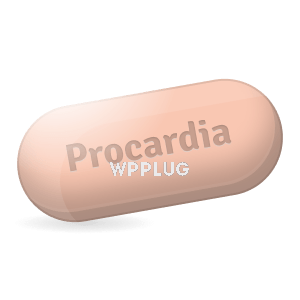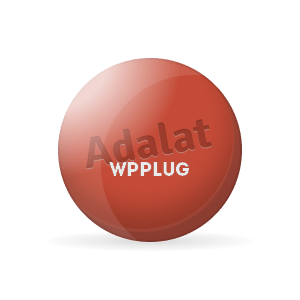
| Product dosage: 20mg | |||
|---|---|---|---|
| Package (num) | Per pill | Price | Buy |
| 90 | $0.50 | $45.02 (0%) | 🛒 Add to cart |
| 120 | $0.43 | $60.02 $51.02 (15%) | 🛒 Add to cart |
| 180 | $0.35 | $90.04 $63.03 (30%) | 🛒 Add to cart |
| 270 | $0.30 | $135.05 $81.03 (40%) | 🛒 Add to cart |
| 360 | $0.27
Best per pill | $180.07 $97.04 (46%) | 🛒 Add to cart |
Similar products

Adalat: Advanced Blood Pressure Control for Cardiovascular Health
Adalat, with its active ingredient nifedipine, is a trusted calcium channel blocker prescribed for the management of hypertension and angina. This medication works by relaxing and widening blood vessels, allowing blood to flow more easily and reducing the heart’s workload. It is a cornerstone in cardiovascular therapy, offering a targeted approach to improving vascular health and preventing complications associated with high blood pressure. Available in various formulations, including extended-release tablets, Adalat provides consistent, 24-hour control, supporting long-term patient stability and quality of life.
Features
- Active ingredient: Nifedipine, a dihydropyridine calcium channel blocker
- Available in immediate-release and extended-release (XL, GITS) formulations
- Standard dosage strengths: 10 mg, 20 mg, 30 mg, 60 mg, and 90 mg tablets
- Designed for once-daily or twice-daily dosing, depending on formulation
- Manufactured under strict pharmaceutical quality control standards
- Prescription-only medication, ensuring supervised use
Benefits
- Effectively lowers high blood pressure, reducing strain on the heart and arteries
- Decreases the frequency and severity of angina (chest pain) episodes
- Helps prevent long-term cardiovascular complications, such as stroke or heart attack
- Extended-release formulations maintain consistent blood levels for 24-hour protection
- Supports overall vascular health by improving blood flow and reducing arterial stiffness
- Enhances quality of life by allowing greater physical activity with reduced cardiac symptoms
Common use
Adalat is primarily indicated for the management of hypertension (high blood pressure) and chronic stable angina. It may be used as monotherapy or in combination with other antihypertensive agents, such as beta-blockers or ACE inhibitors, depending on individual patient needs and response. In some cases, it is also prescribed for Raynaud’s phenomenon or off-label for certain types of preterm labor, under strict medical supervision.
Dosage and direction
Dosage must be individualized based on the patient’s condition, response to therapy, and the specific formulation prescribed. For hypertension or angina, the typical starting dose for extended-release tablets is 30 mg or 60 mg once daily, which may be titrated upward over a 7- to 14-day period. The maximum recommended dose is 90 mg daily. Immediate-release formulations are usually administered 10 mg three times daily, with a maximum of 180 mg per day. Tablets should be swallowed whole with a glass of water, with or without food, but consistency in administration is advised. Do not crush, chew, or break extended-release tablets.
Precautions
Patients should be monitored regularly for blood pressure and heart rate. Use with caution in patients with heart failure, severe aortic stenosis, or liver impairment. Grapefruit or grapefruit juice should be avoided, as it can increase nifedipine levels. Patients may experience peripheral edema or dizziness, especially when rising quickly from a seated or lying position. Adalat may cause hypotension, particularly during initial titration or in volume-depleted patients. It is not recommended for use in acute coronary syndromes.
Contraindications
Adalat is contraindicated in patients with known hypersensitivity to nifedipine or any component of the formulation. It must not be used in patients with cardiogenic shock, significant aortic stenosis, or unstable angina (except when part of a comprehensive management plan). Concomitant use with strong CYP3A4 inhibitors like ketoconazole or ritonavir is contraindicated due to risk of severe hypotension.
Possible side effect
Common side effects include headache, dizziness, flushing, peripheral edema, and fatigue. Less frequently, patients may experience palpitations, nausea, constipation, or muscle cramps. Rare but serious side effects include hypotension, heart failure exacerbation, syncope, marked tachycardia, or severe skin reactions. Patients should report any unusual or persistent symptoms to their healthcare provider.
Drug interaction
Adalat may interact with CYP3A4 inhibitors (e.g., clarithromycin, itraconazole) increasing nifedipine levels, or inducers (e.g., rifampin, phenytoin) decreasing its efficacy. Concomitant use with other antihypertensives may potentiate blood pressure-lowering effects. Beta-blockers may be used cautiously but can increase risk of heart failure. Use with quinidine or digoxin may require monitoring and dose adjustment. Avoid combining with grapefruit products.
Missed dose
If a dose is missed, it should be taken as soon as remembered, unless it is almost time for the next dose. In that case, skip the missed dose and resume the regular schedule. Do not double the dose to make up for a missed one.
Overdose
Symptoms of overdose may include severe hypotension, bradycardia or tachycardia, and confusion. In case of suspected overdose, seek immediate medical attention. Treatment is supportive and may include cardiovascular monitoring, vasopressors, IV calcium gluconate, or activated charcoal if ingestion was recent.
Storage
Store at room temperature (20–25°C), away from light, moisture, and heat. Keep in the original container, tightly closed, and out of reach of children. Do not use beyond the expiration date printed on the packaging.
Disclaimer
This information is for educational purposes and does not replace professional medical advice. Always consult a healthcare provider for diagnosis, treatment decisions, and individualized dosing. Do not start, stop, or change medication without medical supervision.
Reviews
“After starting Adalat XL 60 mg, my blood pressure has been consistently within target range. The once-daily dosing is convenient, and I’ve experienced minimal side effects.” – Maria K., hypertension patient.
“As a cardiologist, I find Adalat GITS to be a reliable option for patients requiring smooth 24-hour blood pressure control. Titration is straightforward, and tolerability is generally good.” – Dr. Evan R., cardiologist.
“Effective for my angina, though I did notice some ankle swelling initially. My doctor adjusted the dose, and it’s been manageable since.” – James T., chronic stable angina patient.
